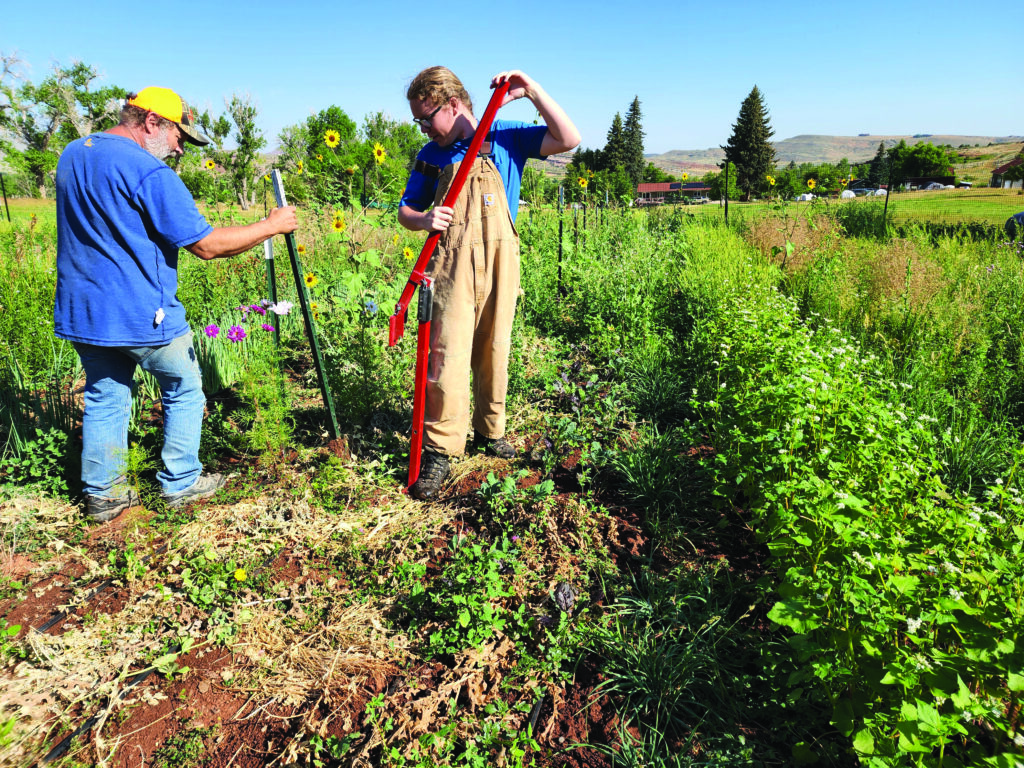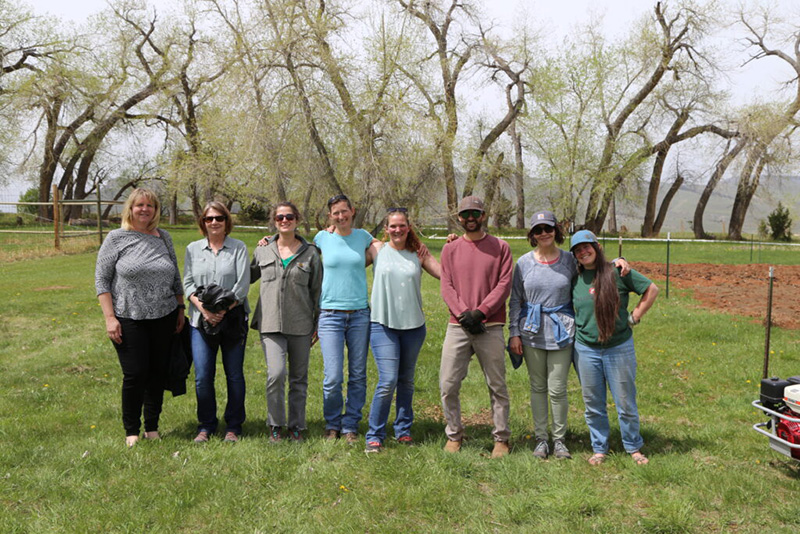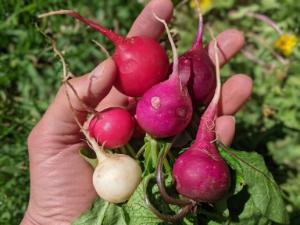Home / News / 2022-2023 News / Regenerative agriculture with the Alpine Science Institute
Regenerative agriculture with the Alpine Science Institute
Home / News / 2022-2023 News / Regenerative agriculture with the Alpine Science Institute
Regenerative agriculture with the Alpine Science Institute

Article courtesy of The Riverton Ranger
Lander is home to many experiential education opportunities, letting people learn by getting their hands dirty. Central Wyoming College (CWC) provides one such opportunity for people interested in agriculture via its crop production practicum, utilizing the college’s half-acre farm at the Alpine Science Institute (ASI) in Sinks Canyon.
“It’s used as a hands-on lab for our farming students to learn techniques in regenerative farming,” explained CWC Lander and Alpine Science Institute Director Joanne Slingerland. Aspects of regenerative farming techniques include paying attention to soil health, how to grow crops with minimal tilling, cover cropping, learning about the relationship between biodiversity and crop resiliency, and knowing which flowers to plant to attract pollinators. It also teaches students about coping with the particular challenges of farming in Wyoming, such as the state’s comparatively short growing season and unpredictable weather patterns.

From left to right: Beth Monteiro, Joanne Slingerland, Jamie Bedard, Ann Buchmeier, Ashley Wright, Ethan Page, Caitlyn Powell, and Gigi Holley.
Slingerland pointed to the program’s comprehensive approach: teaching students about a variety of aspects of operating a farm, starting with planting seeds all the way through putting a garden to bed for the winter at the end of the season. The overarching goal of the program is to help increase the number of new farm businesses that are a part of the local food economy.
The program also partners with local business Dandelion Floral to teach students about growing flowers for a cut-flower business, with the farm actually providing some of the flowers that Dandelion Floral uses for its bouquets.
“It’s an example of a great partnership within our community,” said Slingerland.
Cut flowers are one of the options that the program teaches students to generate more revenue on a small-scale farm; another is adding value to your produce by processing it into a new product, such as fermenting things. Students even gain experience with the realities of selling their produce and other products by running a stand at the Lander Farmer’s Market during the summer.
The program additionally works with various other community partners and organizations, such as the Wind River Food Sovereignty Project, which helps to recruit and support aspiring farmers from the Wind River Reservation.
“We’ve had a lot of support,” said Slingerland.
CWC’s farming program has generated a fair amount of interest, including attracting some students from out-of-state. The ASI has some student housing available for those students who are coming from far away or who otherwise don’t have an affordable housing option in Lander.
Students who complete the program and are ready to launch their own farm but don’t have access to the necessary land can apply to lease a plot of land on the ASI campus as part of CWC’s Farmer Incubation program.

The food crop production practicum is a five-month long course which is broken into three classes over the summer, each focused on early-, mid-, and late-season farming practices respectively. This year’s course will begin on April 5, and CWC currently has five fully funded slots available for interested students.
For more information, you can visit the CWC Farmer Training program’s website at https://www.cwc.edu/farmincubator/, or call the Lander CWC office at (307) 332 – 3394.
2660 Peck Avenue
Riverton, WY 82501
(307) 855 – 2000
Campus Map
120 Enterprise Blvd.
Lander, WY 82520
(307) 332 – 3394
Campus Map
240 S. Glenwood St #124
P.O. Box 4795
Jackson, WY 83001
(307) 733 – 7425
Campus Map
302 W. Ramshorn
P.O. Box 175
Dubois, WY 82513
(307) 455 – 2625
Campus Map
© 2024 Central Wyoming College – All Rights Reserved